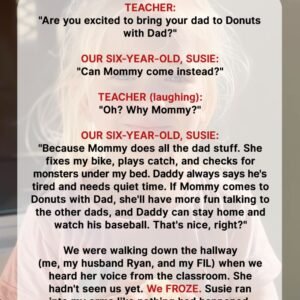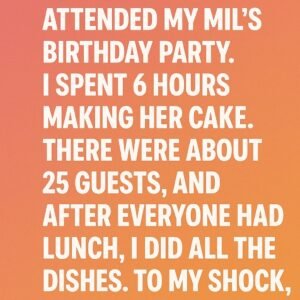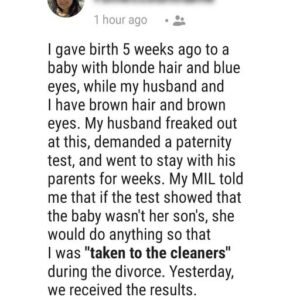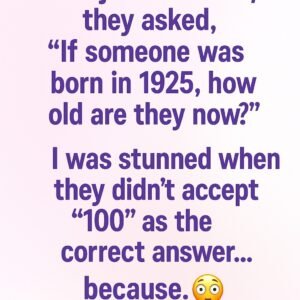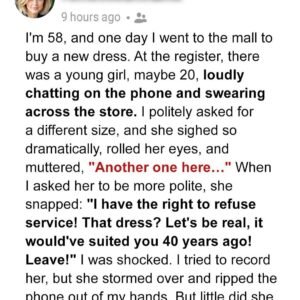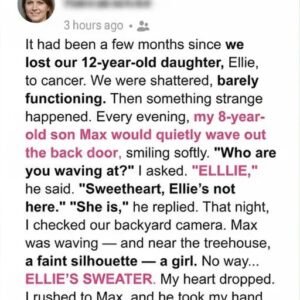“Why are you even here? Shouldn’t you be at home, cripple girl?”
The laughter that followed was sharp, cruel, and echoing.
Inside Maplewood Diner, the air smelled of syrup and coffee — a place where mornings usually began with warmth. But today, the warmth turned bitter.
At a corner booth by the window sat Clara Mitchell, a sixteen-year-old girl with soft brown hair and a wheelchair beside her table. She had ordered her favorite pancakes, the kind her late mother used to make on weekends. Clara loved coming to this diner — it was her small escape from hospital corridors and the stares of strangers.
But not everyone saw her that way.
At the next booth sat a group of teenage boys — Derek, Ryan, and Cole — loud, restless, and bored. When they first noticed Clara, their whispers started small. Then came the mocking.
“Hey, wheels, need a hand cutting that?” Derek sneered.
Clara froze, pretending not to hear. She focused on her plate, her trembling hands betraying her fear.
Then Derek stood up.
Before anyone could stop him, he slapped the plate off her lap, sending pancakes and syrup splattering across the floor.
The diner went silent. Even the hum of the jukebox seemed to die.
Clara gasped, her eyes wide with humiliation. The syrup clung to her hands and jeans like glue. Her wheelchair rolled slightly backward as one of the boys gave it a mocking shove.
Laughter filled the air again — harsh, victorious laughter that made her chest tighten until she couldn’t breathe.
The waitress, Lydia, froze near the counter, her hands shaking. She wanted to help but hesitated, glancing fearfully at the group. A few customers shifted uncomfortably in their seats, muttering, “Kids these days…” but no one moved.
Tears burned behind Clara’s eyes. She tried to reach down to pick up the broken plate, desperate to end the scene. Her voice cracked.
“Please… just stop.”
At that moment, a man from another booth — middle-aged, gray at the temples — rose quietly and knelt beside her. He picked up her plate, wiped it clean with a napkin, and whispered, “Don’t mind them, sweetheart.”
His small kindness broke something inside her — the wall she had built to survive. But the boys only snickered louder.
Derek leaned close and said, “Guess heroes still exist, huh?” and shoved Clara’s chair again.
A plate clattered. Someone gasped.
Lydia shouted, “That’s enough!” — but her voice trembled, powerless.
The boys laughed as they walked out, high-fiving each other, leaving behind silence, spilled syrup, and a girl quietly crying into her hands.
Clara wanted to disappear.
But what she didn’t know was that this wasn’t the end of her morning.
Because one hour later, the sound of roaring engines would shake Maplewood Diner — and no one inside would ever forget what came next.
It began with a low rumble, faint at first, like distant thunder. Then it grew — louder, heavier — until the windows rattled.
Lydia looked up from behind the counter, frowning. Outside, the parking lot began filling with motorcycles, their chrome glinting in the sunlight. The Hell’s Guardians, a well-known biker club in the area, had just arrived.
The boys who had bullied Clara were still nearby, hanging by their pickup truck, laughing and recording TikToks. When they saw the bikers, their smiles faltered. Everyone in town knew the Guardians weren’t the kind you messed with.
The door to the diner swung open. A tall man with a beard streaked in gray and cold steel-blue eyes stepped inside. His name was Ror Jensen, the leader of the group. His vest was covered in patches — Loyalty, Brotherhood, Justice.
He looked around the diner, scanning every face. Then his gaze landed on Clara, sitting silently by the window, her eyes red and swollen.
Ror’s jaw tightened. Without saying a word, he walked over and crouched beside her, the leather of his jacket creaking softly.
“What happened, sweetheart?” he asked gently.
Clara hesitated, her voice barely a whisper. “They… they knocked my food down. Said I shouldn’t eat here.”
Ror’s expression darkened. He stood, turned toward the door — and motioned for two of his men.
Outside, the laughter of Derek and his friends stopped. One of them tried to play it cool. “What’s up, old man?”
Ror didn’t speak. He just looked at them. That was enough. The weight of his silence, the size of the men behind him — it said everything words couldn’t.
“You think it’s funny to pick on a girl who can’t walk?” His voice was low, controlled. “You’re lucky I believe in giving lessons instead of bruises.”
Derek swallowed hard. Ror pointed toward the diner door.
“Go in there. Apologize. Like men.”
The boys shuffled inside, red-faced and trembling. Clara turned her eyes away, unsure what to feel.
Derek mumbled, “I’m sorry…”
Ror folded his arms. “Louder.”
“I’m sorry!” Derek shouted.
No one clapped. No one smiled. The air was heavy with shame.
When the boys left, Ror put a hand on Clara’s shoulder and said quietly, “You don’t let people like that define you. You’re stronger than you think.”
For the first time that morning, Clara smiled — small, hesitant, but real.
Before leaving, Ror called Lydia over. He placed a hundred-dollar bill on the table.
“Bring her whatever she wants. Pancakes, milkshake, pie — the whole menu if she likes.”
Lydia’s eyes glistened as she nodded.
Then Ror did something no one expected. He took off his leather vest, the one covered in club insignias, and gently draped it over Clara’s shoulders. It was heavy, warm, smelling faintly of leather and wind.
“This means you’re family now,” he said. “And no one messes with family.”Family travel packages
Tears streamed down Clara’s cheeks. Around the diner, people began to clap — slowly at first, then louder. Even the cook stepped out from the kitchen, wiping his hands on his apron, watching the scene unfold with pride.
Clara whispered, “Thank you.”
Ror smiled. “No, thank you. You reminded us why we ride together — to stand up for people who need it.”
When the bikers finally left, their engines roared again, but this time it sounded different — not like thunder, but like applause from the heavens.
That night, Clara returned home still wearing the vest. Her father, a quiet man who had long struggled to comfort her, looked at her and froze.
“Where did you get that?”
She smiled through her tears. “From the bravest people I’ve ever met.”
And though nothing could erase what had happened that morning, something inside Clara had changed. She wasn’t the trembling girl who wanted to disappear anymore. She had seen that courage existed — not in those who mocked, but in those who stood up.
Sometimes, kindness doesn’t come in white coats or fancy suits.
Sometimes, it rides in on a motorcycle and changes your life forever.
